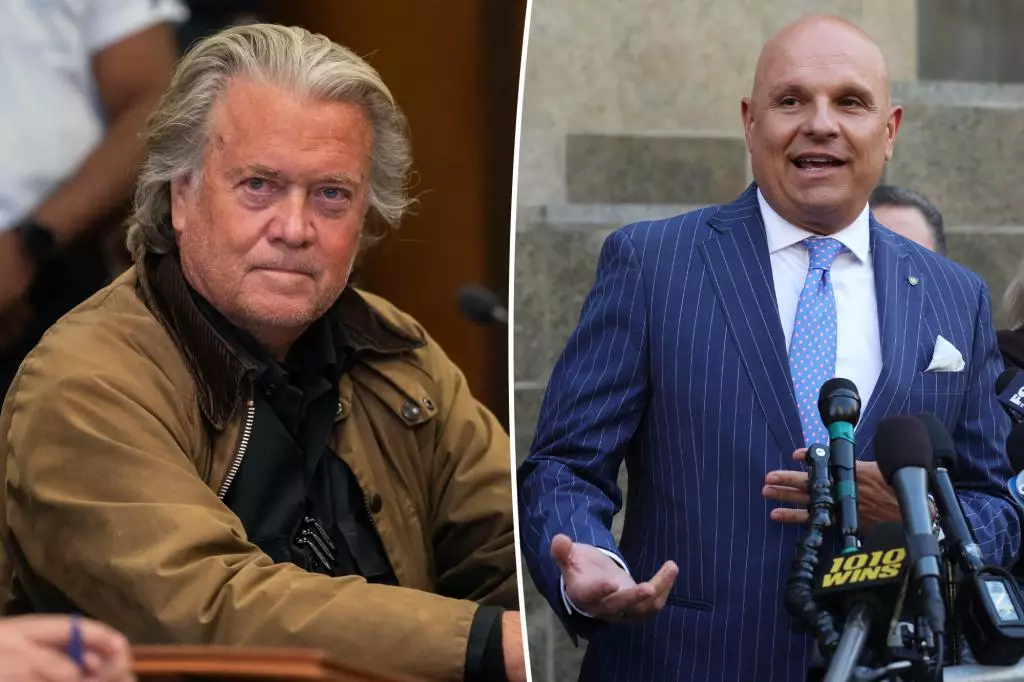Steve Bannon, a prominent figure in American politics and a notable ally of former President Donald Trump, is currently embroiled in a legal struggle that has generated considerable media attention. Facing trial for fundraising fraud, Bannon has enlisted the services of high-profile attorney Arthur Aidala, whose previous clients include notorious figures like Harvey Weinstein and Ghislaine Maxwell. Aidala’s involvement underscores the severity and complexity of the allegations against Bannon, which have been characterized by some as politically motivated.
In 2022, Bannon was charged by Manhattan District Attorney Alvin Bragg with defrauding donors to his non-profit organization, We Build The Wall. The initiative allegedly misused funds committed by donors who were led to believe their contributions would be used to construct a wall along the US-Mexico border. The unfolding scandal attracted significant attention, particularly given the political context surrounding Bannon, who previously served as a chief strategist in the Trump White House.
Bannon has pleaded not guilty to various charges, including money laundering, fraud, and conspiracy. These serious accusations could potentially lead to a prison sentence of five to fifteen years if he is convicted. The evidence against Bannon appears to be substantial, particularly when considering the sentences already handed down to his co-conspirators, Brian Kolfage and Andrew Badolato, who were convicted of similar charges and received prison sentences for their roles in the fraudulent scheme.
The narrative surrounding Bannon’s legal troubles points to a broader theme of political influence in the judicial process. His attorney, Aidala, expressed a strong belief that the case against Bannon is emblematic of “lawfare,” a term used to describe the misuse of legal systems to achieve political ends. This perspective resonates with Bannon’s supporters, who argue that the legal action is an attempt to undermine Bannon’s political standing and activism.
Additionally, Bannon’s history adds another layer of intrigue to the case. After a brief imprisonment for refusing to comply with a subpoena related to the January 6 Capitol riot, Bannon continues to polarize public opinion. His controversial statements on social media platforms have led to bans from Twitter and YouTube, sparking debates on freedom of expression and the consequences of incendiary rhetoric.
The Road Ahead for Bannon
Bannon’s upcoming court date on February 25 will be a crucial moment in his ongoing legal drama. With the backing of Aidala, there is a palpable sense of determination on Bannon’s legal team to dismantle the prosecution’s case and reclaim Bannon’s reputation. The coming months will undoubtedly reveal more about the judicial landscape surrounding high-profile political figures and how their past actions continue to reverberate in their present circumstances.
Steve Bannon’s trial raises critical questions about accountability, political motivations, and the intersection of law and politics. As this case progresses, it will not only shape Bannon’s future but also reflect broader societal issues related to governance and the justice system.

